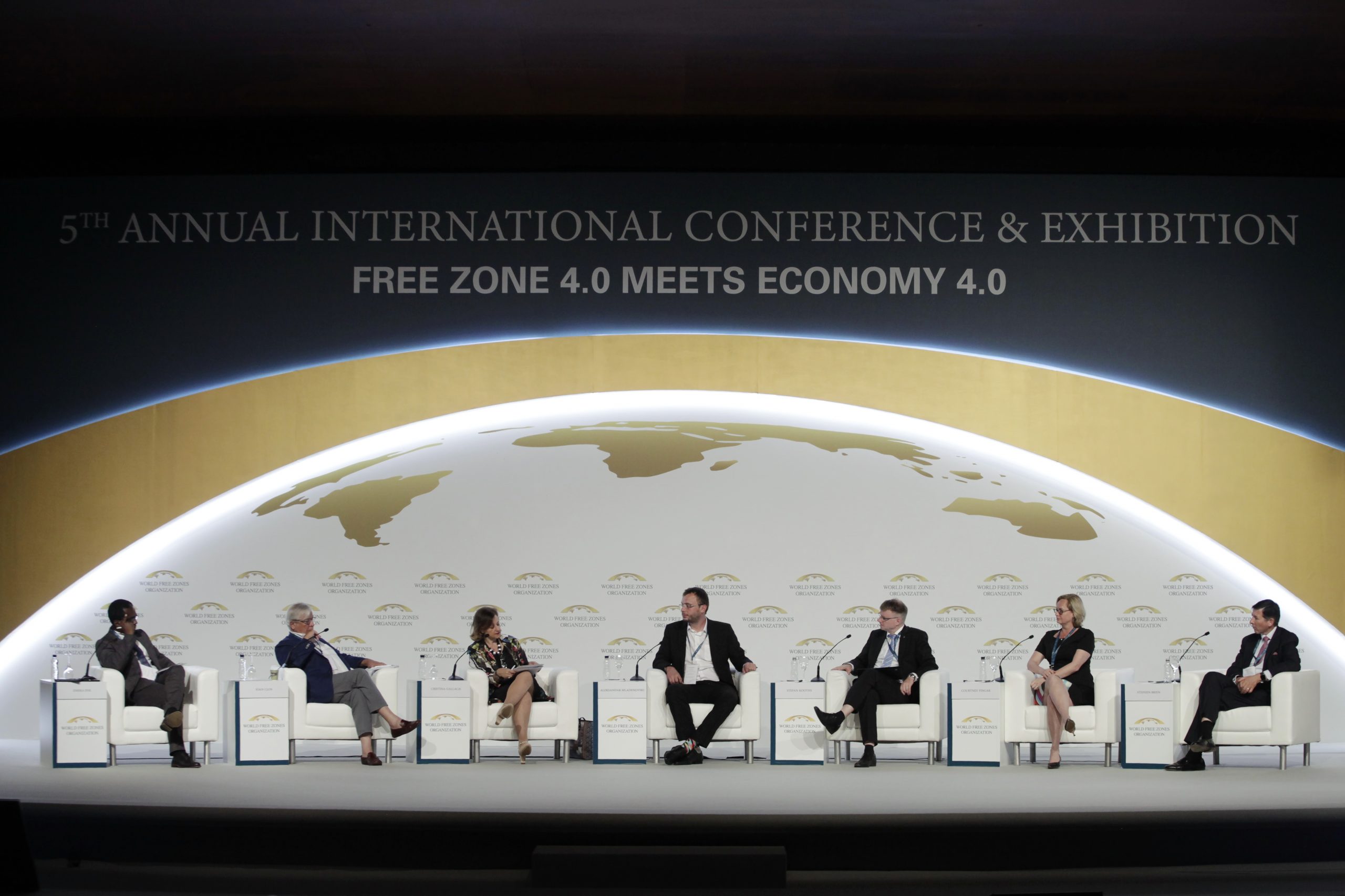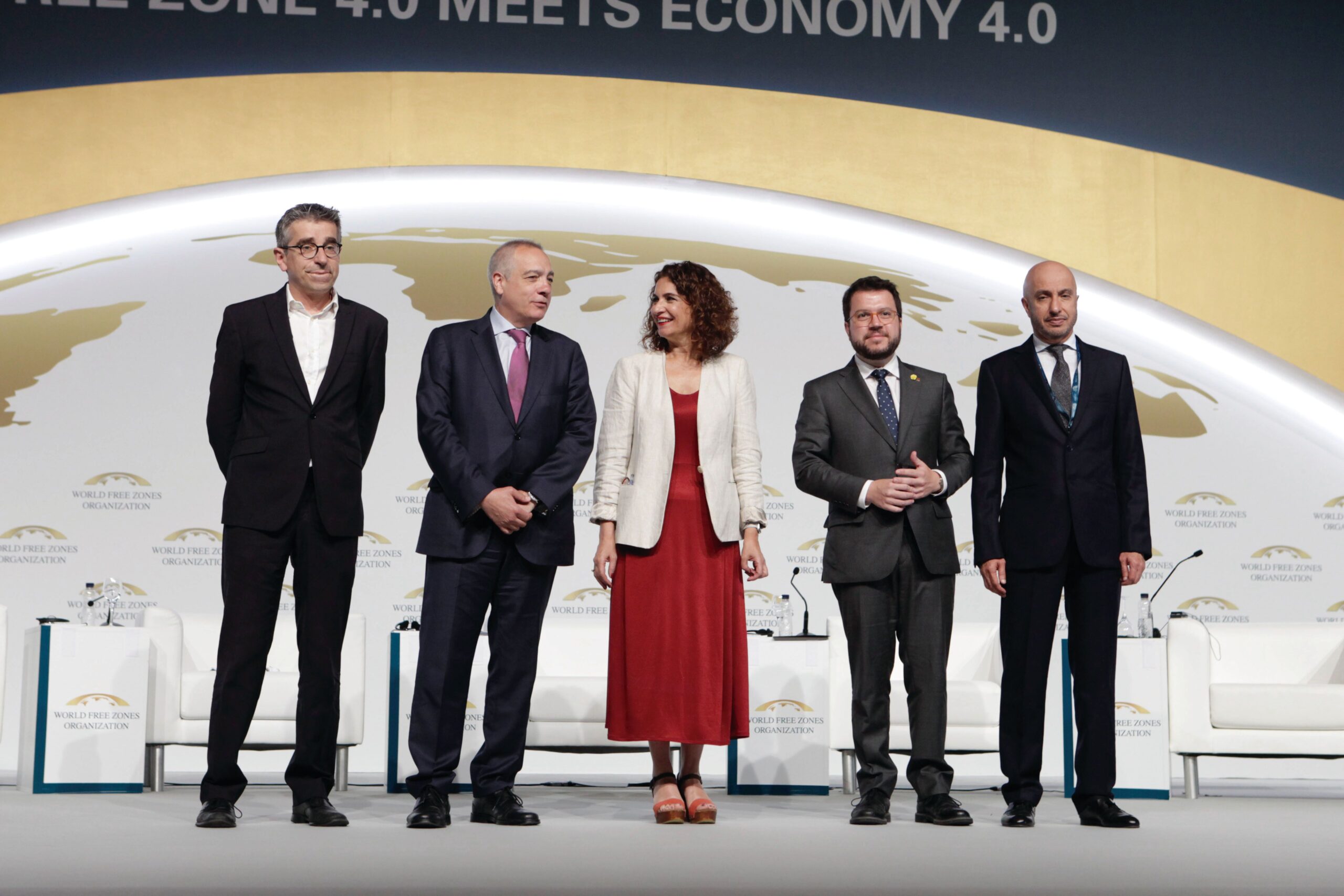World Free Zones
International Conference

5TH WORLD FREE ZONES INTERNATIONAL CONFERENCE – AICE 2019
From 26 to 28 June, Barcelona was the world capital of international trade and logistics, with the celebration of the 5th World Free Zones International Conference – known as the Annual International Conference and Exhibition (AICE 2019) – and organised by the World Free Zones Organization (World FZO) with the backing of the Free Zone.
“An opportunityfor Barcelona toshine as on grandoccasions”
Pere Navarro
The event, which brought together hundreds of leaders from the main world free zones, along with decision-makers of international trade, addressed the paradigm shift that globalisation and digitalisation are causing in production and trade processes around the world

FIRST WORLD FREE ZONES CONGRESS HELD IN EUROPE
Held at the Palau de Congressos of Fira de Barcelona, this first European edition of the World Congress of Free Zones was opened by the Minister of Finance, María Jesús Montero, Vice President of the Generalitat, Pere Aragonès, Special State Delegate of the Barcelona Free Zone, Pere Navarro, Deputy Mayor of the City of Barcelona, Jordi Martí and President of the World FZO, Mohammed Alzarooni.
All the authorities highlighted the importance of Barcelona hosting an event of this nature, belonging to a highly relevant economic sector, that of the free zones, which generates a third of international trade and provides some 70 million jobs worldwide.
THE LEADERSHIP AND INNOVATION CONFERENCE
After a first day dedicated to leadership seminars, with the participation of senior executives from the world’s free zones, over the following two days several debating sessions were held with international experts in the sector, from both professional and academic fields.
Under the motto “Free Zone 4.0 Meets Economy 4.0”, logistics 4.0, ecommerce 4.0, e-learning 4.0, data 4.0, transparency 4.0 and economy 4.0 were all addressed.
Present among the speakers were Joan Clos (former Mayor of Barcelona and former Executive Director of the United Nations Human Settlements Programme); Cristina Gallach (High Commissioner for the UN 2030 Agenda in Spain); Erik Autor (President of the Association of Free Zones of the United States); Eesa Bastaki (President of the University of Dubai) and Juan Pablo Rivera (President of the Bogotá Free Zone).

The congress marked a clear defence of the progressive transformation of free zones into innovative hubs in the face of globalisation and the digitalisation of international trade.
The idea that was widely supported by the agents of the sector was that free zones promote economic activity in their territories and evolve beyond their traditional role as import and export environments that are not subject to customs tariffs.
In addition, it was emphatically stated that the free zones and other industrial areas must commit to the sustainability of the planet and play an increasingly proactive role in cities through a more human and ecological urban development.
